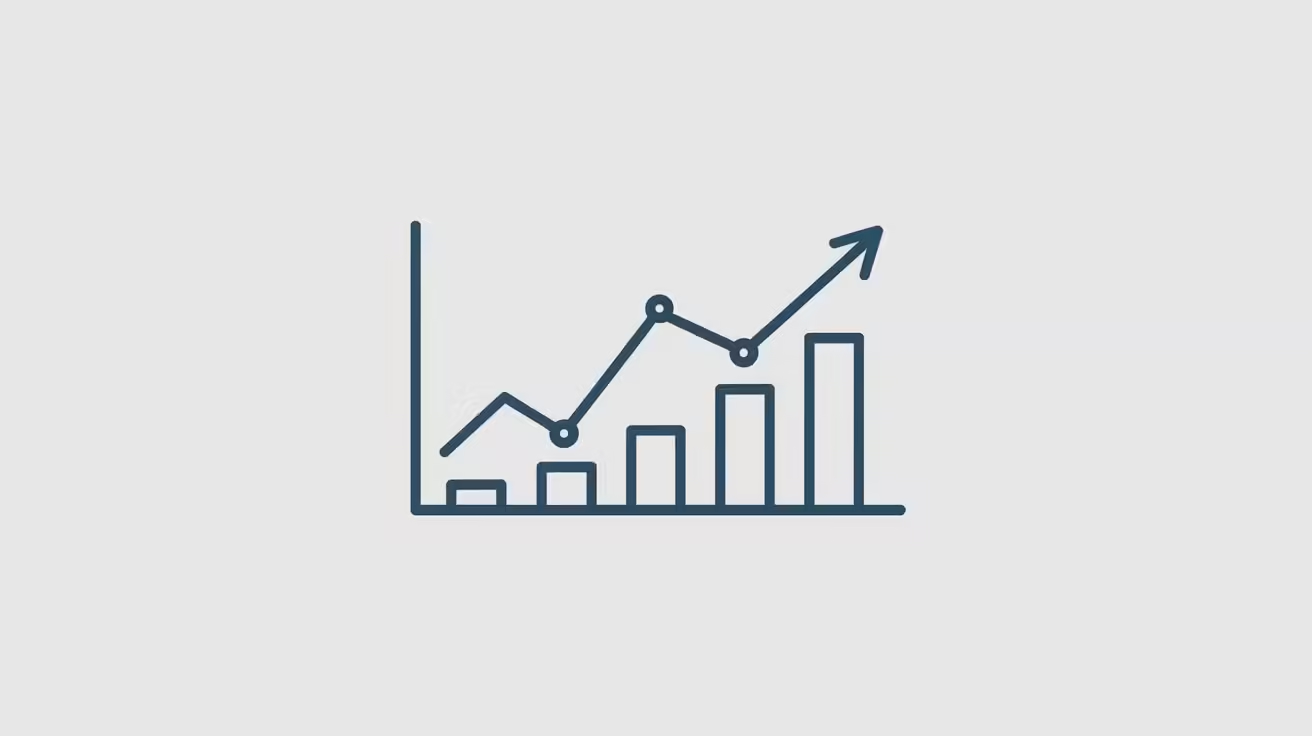Condo Investment Strategy: The Key to Maximizing Returns

Investing in condominiums can be one of the most profitable ventures in real estate, provided you employ a well-thought-out condo investment strategy. Condos offer unique opportunities, from affordable entry points to flexible rental options, that make them attractive to investors. However, like any investment, there are risks, challenges, and considerations that must be managed effectively to ensure success. This article will guide you through the condo investment strategy essentials, ensuring you have the tools and knowledge to navigate the competitive real estate market with confidence.
The Basics of Condo Investment Strategy
Investing in condos may seem straightforward, but the key to maximizing returns lies in developing a robust condo investment strategy. At its core, a good strategy involves understanding the property market, financing, legalities, and managing ongoing responsibilities, all while making decisions that align with long-term financial goals.
Why Condos Make for a Smart Investment
One of the most appealing aspects of investing in condos is their lower price point compared to single-family homes. This affordability allows investors, especially first-time buyers, to enter the real estate market without needing massive capital upfront. Condos also typically require less maintenance, as common areas are managed by homeowner associations (HOAs).
Furthermore, in bustling urban areas, condos tend to be in high demand due to their prime locations near work hubs, entertainment, and public transportation. A well-located condo can not only appreciate in value over time but also provide steady rental income if managed properly.
Market Research: The Foundation of a Solid Condo Investment Strategy
Before diving into condo investments, it’s critical to conduct thorough market research. Understanding the market trends, demographics, and the local economy of the area where the condo is located will help you make informed decisions.
Pay attention to the following:
- Location trends: Is the area growing or stagnating? Look for upcoming developments such as malls, parks, or transit hubs.
- Economic stability: A robust local economy will support rental demand and property appreciation.
- Rental market: Investigate the demand for rental properties and average rental rates in the area.
- HOA dynamics: Research the homeowner association’s financial health and any upcoming assessments, as these will affect your returns.
Pro Tip: Some of the best condo investment strategies revolve around spotting emerging neighborhoods before they fully develop, as this can significantly boost property appreciation. Indirect 401k Rollover: Discover 5 Powerful Strategies
The Importance of Location in Your Condo Investment Strategy
Location, often called the holy grail of real estate, plays an essential role in a condo investment strategy. A great condo in a bad location can hinder your ability to attract tenants or resell at a profit, while an average condo in a prime area can turn out to be an exceptional investment.
When selecting a condo, look for properties that offer proximity to:
- Public transportation: Condos near metro stations or bus routes are highly desirable for renters and buyers alike.
- Commercial hubs: Areas close to businesses, restaurants, and entertainment facilities tend to appreciate faster.
- Schools and healthcare: If you’re targeting families or working professionals, proximity to quality schools and hospitals can be a major selling point.
Location not only impacts the resale value of your condo but also its rental potential. Therefore, make location one of the top priorities in your condo investment strategy. Roll Annuity to IRA: Maximize Your Retirement Savings with 5 Proven Strategies

Assessing the Financial Viability of a Condo Investment
A critical component of any condo investment strategy is assessing the financial viability of the purchase. Start by calculating the potential return on investment (ROI), which can be broken down into two components: rental income and appreciation.
- Rental Income: Analyze local rental rates and estimate how much rent you can charge. This should cover your mortgage, HOA fees, and maintenance costs, while still providing a healthy margin of profit. Rental yields of 5-8% are considered good in many markets.
- Appreciation Potential: Investigate the historical price trends of condos in the area. Although appreciation rates vary, areas undergoing rapid development or gentrification tend to see higher-than-average property value increases.
Use these figures to assess the cash flow potential of the investment and determine whether it’s a sound financial move. Graphing Compound Interest: Master the 5 Visual Keys to Wealth Growth
Financing Your Condo Investment
Securing the right financing is an integral part of your condo investment strategy. As with any real estate investment, you’ll need to weigh your financing options carefully. While some investors may have the capital to purchase a condo outright, most will rely on mortgages.
Consider the following:
- Interest Rates: Shop around for the best mortgage rates. Even a slight difference in interest rates can have a significant impact on your long-term profits.
- Down Payment: Generally, a 20% down payment is required for investment properties, though some lenders may require more for condos due to perceived risks.
- Loan Terms: Opt for a loan term that aligns with your investment goals. Shorter terms come with higher monthly payments but lower overall interest costs.
- Property Management Costs: Factor in the costs of hiring a property manager if you don’t intend to manage the property yourself.
Understanding the full cost of the investment and the financing terms will help you structure a more effective condo investment strategy.
Understanding the Role of HOA Fees
When investing in a condo, you’ll encounter HOA fees, which cover the cost of maintaining shared spaces like lobbies, pools, and gyms. These fees vary greatly depending on the property and location, and they can eat into your profit margins if you’re not careful. Transfer Pension to IRA: Unlock 5 Powerful Benefits
In your condo investment strategy, you’ll want to:
- Review HOA financials: Ask for a copy of the HOA’s financial statements to ensure it’s financially stable.
- Understand the scope: Know exactly what services the HOA fees cover. Some may include utilities or internet, which can reduce your tenant’s out-of-pocket costs.
- Watch out for special assessments: Sometimes, HOAs impose special assessments to cover major repairs or improvements, such as roof replacements. These can be unexpected costs that may affect your returns.
Carefully factoring in these fees will ensure that you’re not caught off guard by hidden costs that can diminish your returns.
Timing the Market: When to Buy Condos for Maximum Profit
Timing the market is a crucial part of any real estate investment strategy, and condos are no exception. To maximize your returns, consider the following factors:
- Market Cycles: Real estate markets typically follow cycles of boom, bust, and recovery. Investing during a downturn or early in a recovery can lead to significant appreciation.
- Seasonality: Real estate markets tend to slow down in the winter and pick up in the spring and summer. You might find better deals in the off-season but sell or rent faster during peak periods.
- Interest Rates: Rising interest rates can cool down the housing market, while lower rates make borrowing cheaper, which increases demand.
By understanding these cycles, you can better time your investments, ensuring your condo investment strategy delivers maximum profitability.

Managing Your Condo: To DIY or Hire a Property Manager?
Once you’ve purchased your condo, you’ll need to decide whether to manage it yourself or hire a property management company. Both options have their pros and cons, and the best choice depends on your lifestyle and investment goals.
- Self-Management: If you have the time and live near the property, managing your condo yourself can save you money on management fees. However, it requires a significant time investment to handle maintenance requests, collect rent, and deal with tenants.
- Professional Management: Hiring a property manager can save you time and reduce stress, but it comes at a cost—typically 8-10% of the rental income. If you own multiple units or live far from the condo, a property manager may be a smart investment that ensures your condo investment strategy runs smoothly.
Short-Term vs Long-Term Rentals: Which is Better for Your Condo?
Another key decision in your condo investment strategy is whether to rent out your property on a short-term or long-term basis.
- Short-Term Rentals: Platforms like Airbnb have made short-term rentals incredibly popular. Condos in tourist-heavy areas can generate higher per-night rental rates, but short-term rentals require constant management and may have restrictions imposed by the HOA or local regulations.
- Long-Term Rentals: Long-term tenants provide stable, predictable income with less management hassle. However, you may not earn as much as you would with short-term rentals, and finding reliable tenants can take time.
Consider the demand in your area, your time commitment, and the local regulations when deciding which option fits your condo investment strategy.
Maximizing Your Condo’s Appeal for Renters
To ensure your condo is always rented and profitable, it’s important to maximize its appeal. Here’s how you can do that:
- Renovations: Small upgrades, such as modern appliances, energy-efficient lighting, or fresh paint, can make your condo more appealing to potential tenants.
- Staging: For short-term rentals, staging your condo with tasteful furniture and decor can boost your rental rate.
- Amenities: Market the amenities provided by the condo association, such as pools, gyms, or on-site laundry.
- Marketing: Use professional photos and well-written listings to attract high-quality tenants. Be sure to highlight your condo’s best features, such as location, views, or included utilities.
By ensuring your property stands out, you’ll attract more tenants and increase your condo’s profitability.
Exit Strategy: Knowing When to Sell Your Condo
Having a clear exit strategy is just as important as planning the purchase. Sometimes, the real estate market can shift, and knowing when to sell can protect your profits.
Factors to consider:
- Market Conditions: Selling during a seller’s market, when demand is high and supply is low, can help you achieve the best price for your condo.
- Property Value: Monitor the appreciation of your condo. If it has gained significant value, it may be a good time to sell and realize your profits.
- Long-Term Goals: Consider your overall investment strategy. If you plan to diversify your portfolio or move into other forms of real estate, selling your condo may align with those goals.
A successful exit is the final stage of a winning condo investment strategy and ensures that you maximize your investment returns.
How to Identify the Best Cities for Condo Investments
A crucial aspect of any condo investment strategy is identifying the right city or market to invest in. While location within a city is vital, the city or region itself can dramatically impact your investment’s success. Cities that are experiencing rapid growth, economic development, and population increases are typically ideal for condo investments, but there are other factors to consider as well.
Here are key criteria to evaluate when selecting a city for condo investment:
1. Economic Growth and Job Opportunities
Cities with strong economies and plentiful job opportunities tend to see higher demand for housing. Look for cities with growing industries, low unemployment rates, and a stable job market. Locations with thriving tech hubs, finance districts, or health care facilities often attract young professionals, who are a prime demographic for condo living.
Cities like Austin, Texas, and Denver, Colorado, have been cited as great locations for condo investments due to their booming job markets and rapid urban expansion. Investing in condos in economically vibrant cities ensures a steady influx of new residents who require housing, either as renters or buyers.
2. Population Growth
Rapidly growing populations typically increase demand for housing, which drives up property values. Look for cities that have experienced consistent population growth over the past few years. States like Florida, Arizona, and North Carolina are experiencing major population booms due to factors like favorable climates, affordable housing, and job opportunities.
This population growth often translates to more renters in need of affordable living options like condos, as well as potential buyers, ensuring both high rental occupancy rates and resale potential.
3. Urbanization and Infrastructure Development
Urbanization trends—where more people are moving to urban areas—also create opportunities for condo investors. Look for cities where there is significant infrastructure development, such as new roads, public transportation systems, airports, and business centers. These developments often lead to higher property values and rental demand.
Moreover, condos in cities with efficient public transportation systems tend to perform better because urban dwellers, particularly Millennials and Gen Z renters, often prioritize proximity to transit options over owning a car.
4. Real Estate Market Trends
Analyze the local real estate market to determine if it’s a buyer’s or seller’s market. Ideally, you want to invest when property prices are reasonable or poised for growth. Avoid markets that have seen unsustainable price increases as they may be in danger of a downturn. Conversely, areas where property values are stagnant or decreasing could also pose risks.
Cities like Phoenix and Tampa have seen considerable real estate appreciation in recent years, making them attractive destinations for condo investments.
5. Local Government and Zoning Laws
Local government policies and zoning laws can significantly affect your condo investment strategy. For instance, some cities have stricter regulations on short-term rentals like Airbnb, while others may impose rent control laws that limit your rental income potential. Familiarize yourself with local real estate laws and the regulatory climate to avoid surprises that could hinder your investment.
6. Affordability and Cost of Living
Affordability is another important factor. Many investors target cities where the cost of living is relatively low but where property values are steadily increasing. These locations allow investors to buy into the market before prices soar, reaping substantial returns when property values catch up with demand. Cities like Nashville, Tennessee, and Raleigh, North Carolina, offer this type of opportunity.
How to Build a Diversified Condo Investment Portfolio
A key part of any condo investment strategy is diversification. Relying on a single property, or even a single market, can expose you to unnecessary risk. A diversified portfolio, on the other hand, helps you spread out risk and provides multiple streams of income. Here are several strategies for diversifying your condo investments.
1. Invest in Multiple Locations
Diversify your condo investments by purchasing properties in different cities or even different states. This geographical diversification minimizes the impact of a downturn in any one market. For example, owning condos in both Miami and Phoenix could protect your portfolio if one city’s real estate market declines while the other remains strong.
2. Vary Property Types
Within the condo sector, there are a variety of property types, from luxury high-rises to more affordable, suburban-style units. By diversifying across property types, you can appeal to different tenant demographics and market segments. Luxury condos might attract high-net-worth individuals looking for long-term rentals, while more modest units could appeal to young professionals or families.
3. Blend Short-Term and Long-Term Rentals
As discussed earlier, you can diversify your condo investments by using a mix of short-term and long-term rental strategies. This approach allows you to take advantage of the steady, predictable income from long-term leases while also capitalizing on the higher rental rates from short-term tenants in peak seasons.
4. Consider International Investments
If you’re looking to diversify even further, consider international condo investments. Some foreign markets offer lower entry points, high rental yields, and favorable tax structures. For example, many U.S. investors have found success in places like Mexico and Costa Rica, where beachfront condos are in high demand by tourists and expats alike.
Before diving into international investments, however, it’s essential to understand the local laws, tax implications, and potential challenges of owning property in a foreign country.

How to Manage Risks in Your Condo Investment Strategy
While condos offer attractive returns, they also come with risks. A smart condo investment strategy includes risk management techniques to safeguard your capital and mitigate potential losses. Here’s how you can protect your investment.
1. Monitor HOA Stability
As mentioned earlier, the financial health of the homeowner association (HOA) is critical. An HOA in financial distress can impose costly special assessments or fail to maintain the property adequately, which in turn can lower your condo’s value. Request detailed financial records from the HOA before making a purchase and avoid buildings with high delinquency rates or frequent assessments.
2. Insure Your Property
Proper insurance is a must for any condo investor. Condo insurance typically covers the interior of the unit, while the HOA’s insurance policy covers the building’s exterior and common areas. However, ensure that your policy also covers loss of rental income in the event of damage or other disruptions.
For short-term rentals, consider additional liability coverage, as the higher turnover rate increases the chances of accidents or property damage.
3. Keep an Emergency Fund
Even the best-laid condo investment strategy can face unforeseen challenges, from market downturns to unexpected maintenance costs. Having an emergency fund to cover mortgage payments, HOA fees, and repairs can keep your investment afloat during tough times. A good rule of thumb is to set aside at least 3-6 months’ worth of expenses in case of vacancies or emergencies.
4. Stay on Top of Market Trends
The real estate market is constantly evolving, and what works today may not work tomorrow. Stay informed about market trends, economic shifts, and potential legal changes that could affect your condo investment. For example, if a city enacts stricter rental regulations, it could affect your short-term rental income.
Being proactive and adapting your strategy as needed is essential for long-term success.
Leveraging Tax Advantages in Your Condo Investment Strategy
One often overlooked aspect of a condo investment strategy is the tax advantages that come with owning real estate. Real estate investors can take advantage of several deductions and credits that can significantly reduce their tax burden. Here are some key tax benefits to consider:
1. Depreciation
Even though real estate generally appreciates over time, the IRS allows you to depreciate the value of your condo over 27.5 years. This deduction can help offset your rental income and lower your taxable income.
2. Mortgage Interest Deduction
If you finance your condo with a mortgage, you can deduct the interest you pay on the loan from your taxable income. This deduction can be substantial, especially in the early years of the mortgage when interest payments are high.
3. Property Taxes
Property taxes are another deductible expense for real estate investors. Keep track of your property tax payments, as they can significantly lower your overall tax bill.
4. 1031 Exchange
If you sell a condo and use the proceeds to invest in another property, you may be able to defer capital gains taxes through a 1031 exchange. This allows you to reinvest your profits into another condo or property without having to pay taxes immediately, enabling you to grow your real estate portfolio more quickly.
Sustainable Condo Investments: Going Green for Long-Term Success
Sustainability is increasingly becoming a major factor in real estate investments, including condo investing. A growing number of renters and buyers prioritize eco-friendly features, which means condos with green certifications or sustainable upgrades can be more appealing and command higher rents.
1. Energy-Efficient Upgrades
Consider investing in energy-efficient appliances, windows, and lighting for your condo. Not only do these upgrades reduce utility bills for you or your tenants, but they also make the property more attractive to eco-conscious renters.
2. LEED Certification
Some condo buildings are LEED-certified, which means they meet certain sustainability standards. LEED-certified buildings typically have lower energy costs, better indoor air quality, and a reduced environmental footprint. Properties with LEED certification often appreciate faster and attract premium renters.
3. Solar Power
If feasible, consider solar panels for your condo investment. While the initial cost can be high, many states offer tax credits and incentives for solar installations. Over time, solar panels can dramatically reduce energy costs and increase the resale value of your condo.
For more information regarding Finance Basic you can visit FinancewithAi Channel & Home
FAQs
What are the key factors in a successful condo investment strategy?
A successful condo investment strategy hinges on thorough market research, understanding financing options, choosing the right location, and managing ongoing costs like HOA fees (condo investment strategy).
How do HOA fees impact condo investments?
HOA fees cover maintenance and amenities but can cut into your profits. Always review the HOA’s financial health and any potential special assessments before investing (condo investment strategy).
Should I manage my condo or hire a property manager?
If you have the time and live nearby, self-management may save money. However, hiring a property manager can reduce stress, especially if you own multiple properties or live far from the condo (condo investment strategy).
Is short-term or long-term rental better for a condo investment strategy?
Short-term rentals can generate higher income but require more management and may have restrictions. Long-term rentals offer stability with less hands-on involvement (condo investment strategy).
What’s the best way to finance a condo investment?
Shop around for favorable mortgage rates and terms, ensure you have a solid down payment, and factor in all costs, including HOA fees and property management (condo investment strategy).
When is the best time to sell a condo investment?
Selling during a seller’s market or when your condo has appreciated significantly can maximize your profits. Having a clear exit strategy aligned with your long-term goals is essential (condo investment strategy).
Conclusion
Investing in condos can be a highly lucrative endeavor when approached with a solid condo investment strategy. From understanding market trends and financing to managing the property and timing your exit, every step requires careful planning and consideration. By following these guidelines and adapting them to your unique circumstances, you can enjoy the financial benefits of a well-executed condo investment.